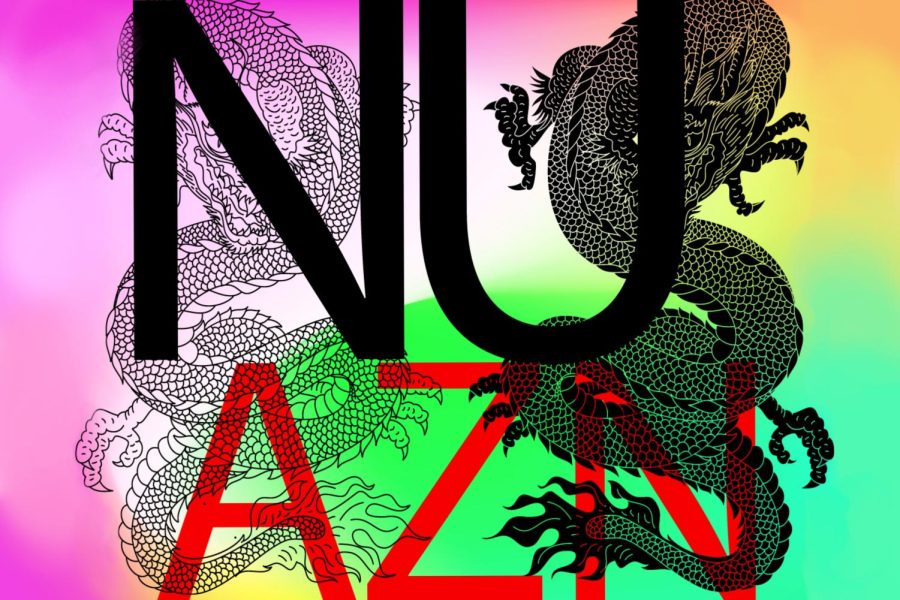‘By you and for your community’: Students revive NU Asian Magazine
Illustration by Samanta Habashy
The upcoming issue of NU Asian Magazine, which is being revived this quarter, seeks to depict “coming of age” through the perspective of Asian Americans.
April 12, 2023
It’s been more than two years since NU Asian Magazine released its most recent issue. But now, students are working to revive the Asian/Asian American student-interest magazine, which plans to release a new edition this quarter.
Medill junior Brendan Le, editor in chief of nuAZN, said the magazine allows young Asian and Asian American journalists to express the way they see the world — a perspective he said other platforms don’t feature as prominently.
“Something that I really love is watching a magazine come together,” Le said. “To be able to produce a print magazine with an all-Asian staff is a testament to what we can make if we’re able to come together.”
Le, who worked on nuAZN last academic year, said pandemic-related challenges hindered the publication’s production. As editor in chief, he helps decide the magazine’s layout, intended tone and theme.
The upcoming issue’s theme is “coming of age.” It’s “close to heart” for Medill junior Ilise Angel, nuAZN’s photo director, because coming of age is a universal experience of discovery, she said.
Angel said photo shoots for the issue will reimagine the depiction of “coming of age” in popular culture and media. Through the perspectives of Asians and Asian Americans, the photo shoots seek to reexamine milestones like prom, she said.
“This issue is a way to point out how (coming of age) is relatable somewhat universally, but it’s not quite capturing the nuances of everyone’s experience,” Angel said. “We’re capturing the Asian American experience.”
Within nuAZN, Angel said telling her own stories and her community’s stories is empowering. But she said journalists of color continue to face challenges in the reporting world outside of affinity magazines.
According to a Pew Research Center survey, 3% of reporting journalists are Asian, whereas 76% are white.
Angel said U.S. newsrooms make it difficult for journalists of color to cover issues beyond their communities. She also said Asian and Asian American reporters take on the emotional labor of writing about the issues their communities face.
Popular Asian American media sites like NextShark aren’t nuanced enough either, Angel added.
“Being able to create a magazine that talks more in-depth — analytically and intentionally — about these issues is impactful, powerful and something that is necessary,” Angel said.
While other campus publications cover stories related to Asian American issues, Le emphasized that nuAZN centers them. The magazine provides an important space not only for readers, but also for its editors and staff, he added.
Medill freshman Judy Zeng, a freelance writer for nuAZN, pitched a story for the issue. She said she plans to cook three dishes from YouTube channel Made with Lau, which features Cantonese recipes, for the issue. She will be documenting her experience for the upcoming issue.
“When I was back home, I followed that YouTube channel, and that was really fun,” Zeng said. “I feel like sharing that with Northwestern’s Asian American community would be really exciting.”
When Zeng came to NU, she knew she wanted to explore campus publications. She said nuAZN allowed her to combine her interest in Asian American issues with reporting.
Ultimately, the magazine allows members of the NU Asian and Asian American community to create content they are drawn to, Angel said.
“It’s a way to creating something that is by you and for your community,” Angel said. “I’m excited to … see how much this can mean to Asians at Northwestern who are going to read it.”
Email: [email protected]
Twitter: @JessicaMa2025
Related Stories:
— The Yappie provides political news for AAPI communities, journalism experience for NU students


